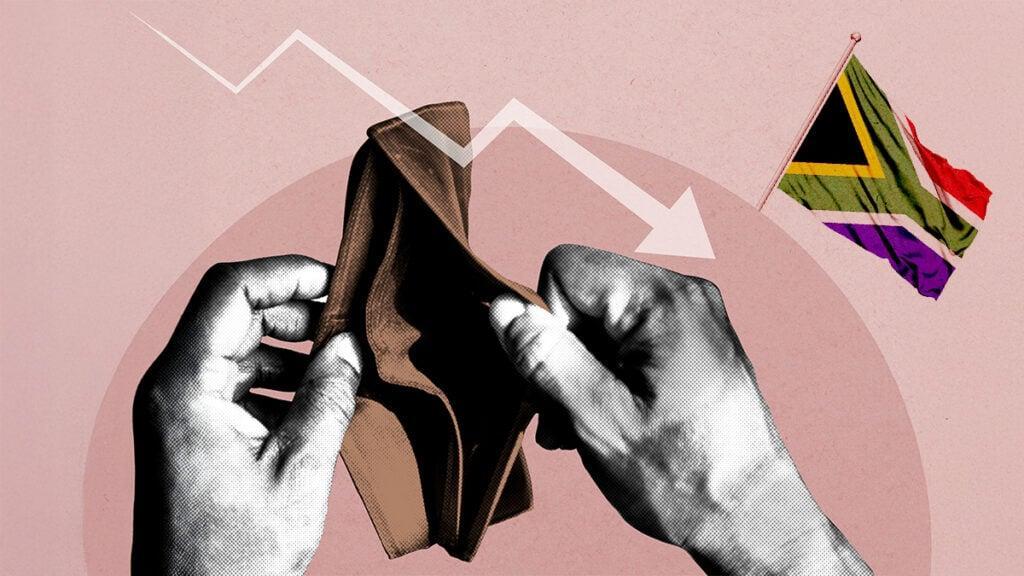Africa-Press – South-Africa. United States President Donald Trump’s escalating tariff war, particularly with China, could trigger a global recession, and depending on the outcomes of the 90-day pause, South Africa could be hit very hard.
International trade law expert and extraordinary lecturer at the University of Pretoria, Dr Gustav Brink, told Daily Investor that Trump’s tariffs are likely to send the world into a recession.
Since announcing his reciprocal tariffs on Liberation Day against nearly 60 trading partners, Trump has taken a step back, announcing a 90-day pause with a “lowered reciprocal tariff of 10%”.
At the same time, Trump has amped up the United States’ trade war with China, with levies on Chinese imports now sitting at a staggering 145%.
China, which increased its tariffs on United States imports to 125%, has called on Trump to abolish these tariffs completely.
With the fate of the trade war with China and the 90-day pause hanging in the air, markets around the world are holding their breath.
If the tariffs that Trump announced initially were to be imposed, experts, including Dr Brink, warned that world trade would decrease significantly, meaning the global economy would likely go into recession.
“A lot, of course, depends on how other countries react to the United States,” Brink said.
China indicated that it is willing to go toe-to-toe with the United States, which has been proven by its multiple tariff increases in response to Trump’s.
According to Brink, the United States will lose massive exports to China because of this, especially of agricultural goods.
Canada has already retaliated and may increase retaliation, and the European Union has also indicated that it will retaliate.
“The more countries retaliate, the more pressure there will be on the United States to reconsider, as the US stands to be the biggest loser,” Brink said.
If these tariffs are implemented, the United States will have to switch imports to countries with the lowest tariffs, i.e. 10%, but that will increase the trade deficit with those countries.
“Will Trump then increase duties on those countries? If you have a duty of 125% on China and only 10% on Australia, will Chinese products be rerouted through Australia?” Brink asked.
“Or even finished in Australia with minimum value added? If so, it will, ironically, likely be done by Chinese-owned companies in Australia.”
Trouble for South Africa
Brink said Trump is already on the back foot, with the 90-day pause just announced.
“He is now full of bravado, indicating that it was the plan all along, but two days ago, he was adamant he would not back down,” he said.
Brink explained that Trump was effectively forced to back down because some of his economic advisers might have convinced him that United States consumers were actually the people suffering the most.
This means that keeping Trump’s initial tariffs in place could lead to a massive voter reversal next year, which might cost him both the House and Senate.
“Depending on what happens during/after the 90-day pause, it could have a bigger or smaller global impact,” Brink said.
“If the trade war with China continues – as it likely will – it will have a massive impact.”
For one, Brink explained that prices in the United States will increase significantly, thus fueling inflation, which might lead the Federal Reserve to increase interest rates even though Trump is already placing pressure on the Fed to decrease rates.
“Next, China is going to look for other markets to absorb all of the products it can no longer export to the United States,” Brink said.
“Since supply will outstrip demand, prices will decrease (dumping), and other countries will now have to face these low-priced, dumped imports.”
“This may lead to a significant increase in anti-dumping and safeguard investigations, and also to many domestic industries closing down, with long-term impacts on inter alia employment.”
Brink added that, depending on the outcome of the 90-day pause, South Africa will be hit very hard.
Allan Gray
Former director at Allan Gray Sandy McGregor explained that if South Africa manages to negotiate away its reciprocal tariff, it would be subject to the standard 10%.
However, there is a danger that the country will not achieve this.
“It has long conducted its foreign policy in ways that the United States disapproves of, most recently by taking Israel to the International Criminal Court,” he said.
“As the ANC is unlikely to change its foreign policy to address American concerns, it will be difficult to negotiate a more favourable trade dispensation.”
He noted that the concessions provided by the African Growth and Opportunity Act (AGOA) are unlikely to survive.
“If we are subject to the standard 10% tariff, the new tariff regime should not be damaging. Our exports to the US are mainly metals, minerals and agricultural products, which the United States requires,” he said.
“The United States consumer will have to pay the cost of any tariff. However, if we are subjected to a punitive tariff, our fruit exports will be in danger because we would no longer be competitive.”
Mcgregor added that South Africa’s vehicle exports to the United States will be subject to similar tariffs applicable to other countries.
“However, the future of these exports will be determined by how international car companies restructure their supply chains. In aggregate, South Africa will lose some of its United States export markets, but this should be manageable,” he said.
For More News And Analysis About South-Africa Follow Africa-Press






